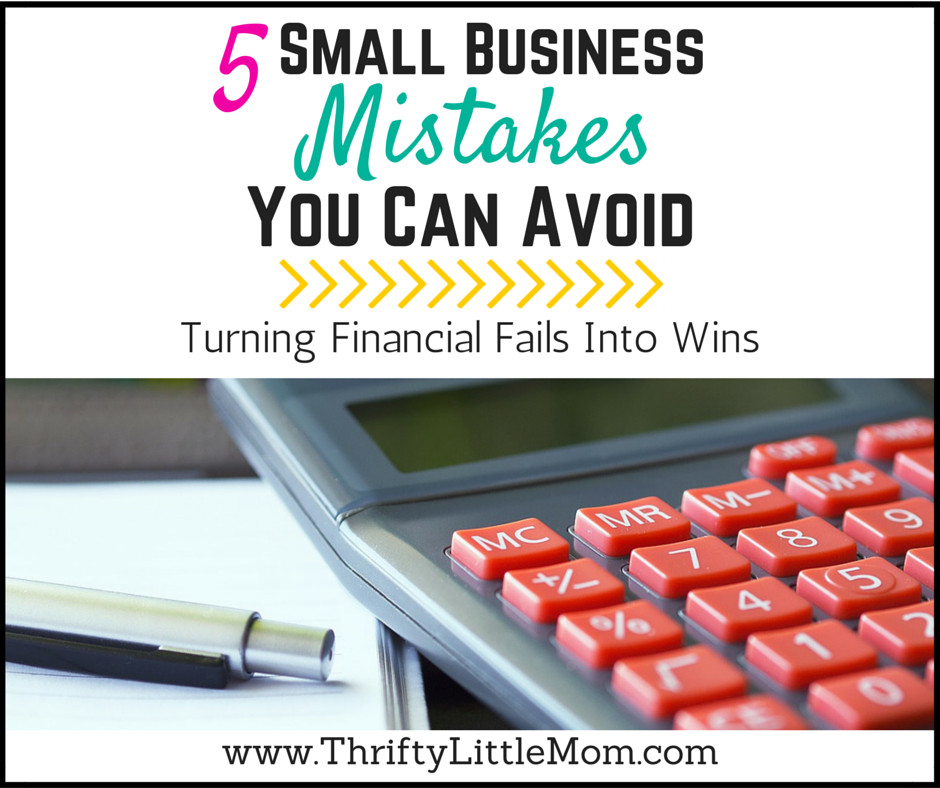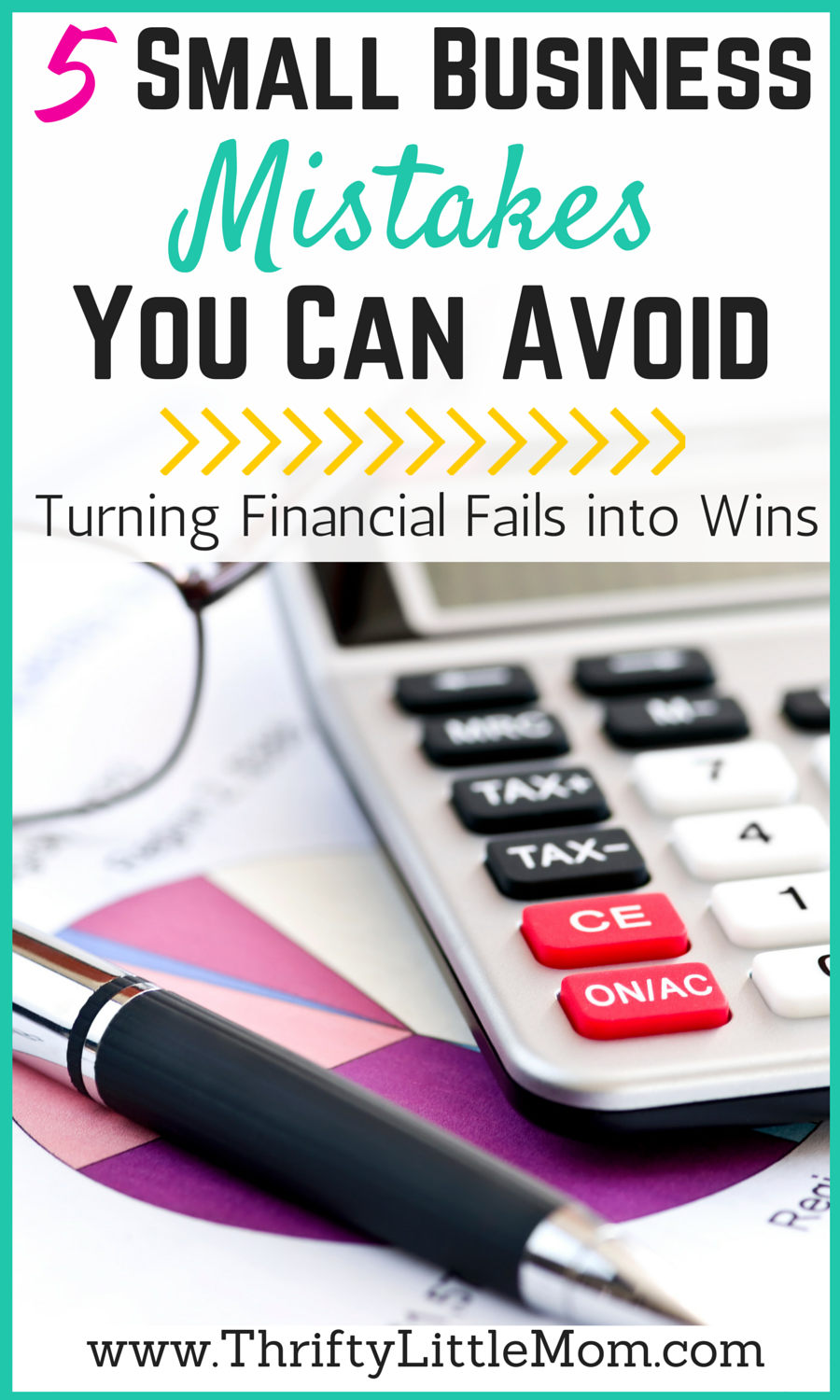5 Small Business Mistakes You Can Avoid
Special Thanks to Aja McClahanan from Principles of Increase for sharing her business failures and what she learned in this guest post!
I have a pretty phenomenal business that I enjoy running these days. I work with a team of awesome people and get to help businesses run more efficiently. This wasn’t always the case. I actually started the most terrible way anyone could start out. How? Fails. Many, many, many fails. However, this should be an encouraging post, so I won’t overwhelm you with all the terrible things I did wrong when I started my business almost 12 years ago. I will highlight the ones that I believe had the most impact on my business bottom line and chances for success. I am being transparent in efforts to help someone reading this. Why make mistakes if you don’t have to? So, here are 5 small business mistakes you can avoid.
1. Trying To Be Fancy-pants
I had to start my business the fanciest, most cost inhibitive way possible. Thinking that more flash and panache would bring more revenues. I wasn’t in the beauty business so this line of thinking made no sense at all. I got office space, purchased furniture and other equipment on credits cards. I was almost $10,000 in the hole before I made once red cent. I never had one client visit my office and rarely had enough money to have employees to even come to my office digs. I could have easily run my business from home. Major fail. The lesson here is to go with the lean start-up method. The bare minimum will do until you can afford more.
2. Not Setting Goals
Saying you want to make $1 million in your first year of business is akin to having no goal. That’s what I had: a no-goal, goal. Miracles do happen, but let’s be realistic. Goals should really be on par with present day capacity. If you’ve got no inventory, no following, no exposure, no client portfolio, then you need to bring your goals into reality. I still believe I will hit the million mark, but these days I look at what’s in the pipeline and consider historical trends to come up with reasonable numbers I can believe in and shoot for. This principle can be applied to any key metric: page views, new clients, etc.
3. Chasing OPM
What’s OPM? You know, other people’s money. For some reason, I had this crazy idea that I needed large sums of money to finance my small potato efforts. I spent too much precious time trying to procure OPM. This is time that would have been better used being creative in business endeavors. It seemed like I was always completing loan or credit card applications, looking for angel investors or entering business plan competitions. Those things have their place and can be helpful for some businesses, but I am a fan of bootstrapping until you absolutely can’t bootstrap anymore. If I would have received any substantial amount of investment or loan money in my early stages of basically not doing anything well at all, it would have been a disaster. I am happily and successfully bootstrapping with no debt or outside equity today. This is so much better than having debt!
4. Neglecting Your Financials
I didn’t start keeping accurate books until about 5 or 6 years into my business endeavors. That’s basically terrible. Once I did, guess who had some questions for me. Yep, the IRS. If I could do it again, I would research thoroughly my tax obligations as a business owner. I didn’t realize until pretty late in the game that I had to set aside a portion of business earnings to pay payroll taxes. Major, double offense fail!
5. Being Too Persistent
I know persistence is vital to success, but what happens when you actually have a sucky idea? I spent far too much time trying to be a “winner not a quitter” when I needed to be flexible and explore other, more profitable ways to run my business. A business pivot is not a business fail. Consequently, I’ve changed my business model at least 5 or 6 times, with the most recent lines of business being the most profitable for the last 7 years or so. I wish I had done this after year 2 of seeing no profits. Oh well, live and learn!
Do you have any major fails that you learned from? How has it made you a better business owner?
Aja “A.J.” McClanahan is a mom, wife and business owner who writes about family, finance, faith and entrepreneurship at www.principlesofincrease.com. She is passionate about helping others get out of debt and find creative ways to experience financial freedom.

Kim Anderson is the organized chaos loving author behind the Thrifty Little Mom Blog. She helps other people who thrive in organized chaos to stress less, remember more and feel in control of their time, money, and home. Kim is the author of: Live, Save, Spend, Repeat: The Life You Want with the Money You Have. She’s been featured on Time.com, Money.com, Good Housekeeping, Women’s Day, and more!



